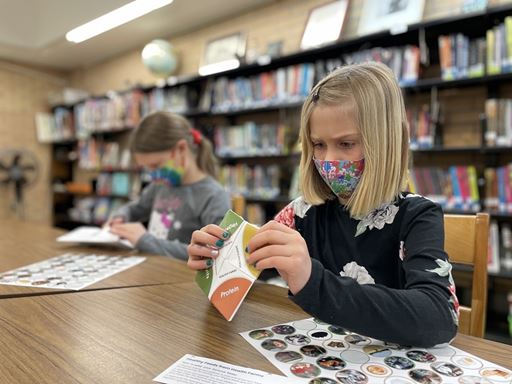Released on March 1, 2021
March 2021 has once again been proclaimed as Agriculture Literacy Month in Saskatchewan. Agriculture Literacy Month allows students across the province to participate in conversations and activities to help them learn about the agriculture industry. This year the Government of Saskatchewan will be providing Agriculture in the Classroom Saskatchewan (AITC-SK) with an additional $400,000 in funding.
“Agriculture Literacy Month is a great opportunity to educate our children and grandchildren about the dedication of Saskatchewan producers and the world-class, environmentally sustainable food that they grow,” Agriculture Minister David Marit said. “Through stories and presentations, students will learn first-hand how our producers create the safe, high-quality products they are known for.”
Agriculture in the Classroom Canada has worked to bring agriculture education into classrooms across the nation. This year will be the 10th year that Canadian Agriculture Literacy Month is celebrated across Saskatchewan and Canada.

“The Ministry of Education is proud to support the 10th anniversary of Agriculture Literacy Month,” Education Minister Dustin Duncan said. “It is important for Saskatchewan students to have opportunities to learn about the significant role agriculture plays not only for our province but around the world.”
This year, students will explore the theme Healthy Foods from Healthy Farms through a variety of hands-on resources, including a book, an interactive activity, a video series exploring food production and processing, and virtual presentations from producers and industry professionals.
“It’s remarkable to reflect on 10 years of Canadian Agriculture Literacy Month and the thousands of meaningful student connections we’ve made with the agri-food sector,” Agriculture in the Classroom Saskatchewan Executive Director Sara Shymko said. “We appreciate the additional funding and are excited about the opportunities to continue to grow this valuable program and develop new student experiences.”
The additional funding provided this year is from the wind-down of the Gross Revenue Insurance Program (GRIP) and will assist AITC-SK in their efforts to educate our students about agriculture. GRIP was a risk management program that was discontinued in 1996, however a small surplus remained in the fund.
In the last decade, Canadian Agriculture Literacy Month has reached over 42,000 students in over 1,500 schools in Saskatchewan with help from more than 1,000 volunteers.
-30-
For more information, contact:
Charlotte McGraw
Agriculture
Regina
Phone: 306-787-4031
Email: charlotte.mcgraw@gov.sk.ca
Chelsey Balaski
Education
Regina
Phone: 306-787-1414
Email: chelsey.balaski@gov.sk.ca

